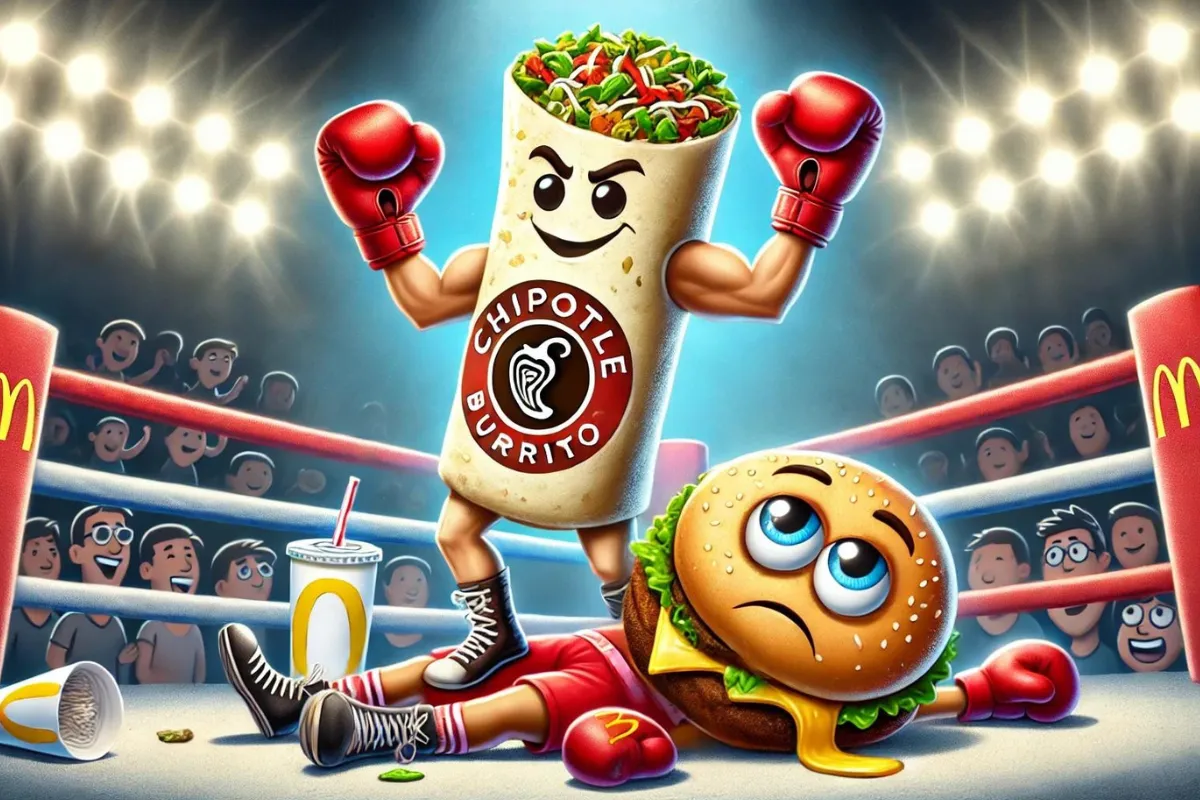BLOG

Winners and Losers in May Retail Sales
The US Census Bureau released last week the advance projection May report of the Index of Economic Activity (IDEA) that includes information how consumers changed their spending last month. The advance report is released mid-month and revised at the end of the month once all data has been finalized.
As we mentioned last week, consumers are changing their spending in what economists refer to as a "soft landing" from former periods of stronger retail sales. Quickly surprised reversals from strong retail sales blindside investors that typically result in greater stock market volatility as investors ' knee-jerk reaction is to SELL!
However, the May advance report indicates that month-over-month (MoM) retail sales edge up 0.1% from April, with a MoM decline in sales from March of -0.2%.

The May report indicated that the categories with the biggest increase in sales were in order.
Sporting Goods, Hobby, and musical instruments: +2.8%
Clothing: +0.9%
Motor vehicles and part dealers: +0.8%
Non store sales (online only): +0.4%
Health and personal care: +0.1%
I find it interesting that musical instruments experienced a bump in sales in May. Our two teen grandsons are in their high school's marching band. This is a big deal for them as the school's marching band has over 100 students who perform at all football games. The band leader is very determined every year to make it to the national competition in Florida and starts practice in mid-July. Students are expected to show up knowing their music and are in good physical shape. They practice twelve hours each day in the hot sun from 9:00am to 9:00pm, learning the new year's performance choreography. The first year our oldest grandson, who plays the clarinet, participated in the summer training, complained his whole body ached for the first week from 12 hours of marching forward, backward, and sideways, not to mention playing his clarinet. Surprisingly, the students have the same determination as the leader, and few quit this grueling workout. Possibly, the bump in musical instruments is due to students buying (more accurately, their parents) new and better-quality instruments in preparation for the next season. I am not sure, but I am impressed with my grandson and the hard work they put in during their summer vacation.
Below are the categories of the biggest declines in May:
Gasoline and auto parts: -2.2%
Furniture stores: -1.1%
Food services and drinking places (real category name): -0.4%
Food and beverage stores: -0.2%
Interestingly, as car sales and auto parts increased in May, gasoline sales at stations dropped. However, the decline in food and beverage consumption is not surprising. In California, the $20/hour minimum wage became effective on May 1, 2024, along with many other states, as politicians are attempting to win voter approval. Meanwhile, costs to eat at fast food restaurants have jumped every month, resulting in dramatic declines in foot traffic and sales. Is anyone really surprised besides politicians?
Reuters reported on April 29, 2024 that McDonalds is grappling with muted foot traffic. Mcdonald's (MCD) reported a drop in sales growth for the fourth consecutive quarter as fewer people are prepared to pay double-digit price tags for hamburger meals. Below is a chart Reuter provided of McDonald's global sales.

The situation is the same for other fast food restaurants including Burger King (QSR) and KFC owner YUM Brands (YUM). In May, Starbucks (STAR) surprised investors during their earnings call with a very dire outlook that sent the stock plummeting 12% that day and down -21.17% for the past year.

On a side personal note, I am always amazed how politicians' social experiments neither work nor even help the demographic group they are supposedly targeting. Raising the minimum wage to near unaffordable levels for companies to deliver competitive meal pricing pushes away customers who choose to spend their dining money somewhere else or not at all. Declining sales prompt management to downsize staff and reduce laid-off employees' wages from $20/hour to $0. Fast food and many dine-in restaurants are replacing staff with machines (no payroll tax, HR, or 401 K's required) such as kiosks ordering machines or iPads at seating booths that are now more affordable than people. The result of misguided and irreversible political experiments is corporations adapt. They restore their profits by changing their service model while we all pay higher prices for hamburgers and society loses entry-level jobs.
However, Chipotle (CMG) is an outlier doing the complete opposite of most fast-food chains. In April, Chipotle announced their same stores sales increased by 7% that topped analysts' expectations. Earnings per share increased 14.5% from $11.68 to $13.37 and net sales increased by 14.1% to $2.7 billion. CEO Brian Niccol said on the earnings call that the company saw traffic growth increase across several income groups during the quarter. He credited the chain's value perception among diners.
Note: We added CMG to our Up Capital Growth & Income and Growth models on March 26, 2020, and again on June 3, 2024.
Chipotle has gone against its peer's approach of adopting machines to do the work of employees. Anyone visiting a Chipotle restaurant will notice a large team of people waiting for you to quickly move you through the buffet, selecting fresh meats and vegetables. Even with the same higher minimum wages and price increases, Chipotle has grown its customer traffic and earnings. Investors have noticed that the stock price is soaring while their competition has declined. Below is a chart illustrating the stock prices of CMG, QSR, MCD, YUM, and STAR.

What Does This Mean to Me?
We maintain a favorable view of the US economy and stock markets. That said, there is growing evidence that the rising cost of living is impacting family households. The combination of higher interest rates, inflation, and increasing local taxes is reducing personal budgets for discretionary items that include leisure, travel, and hospitality. Consumer spending is the core of the US economy, representing 66% of all financial activities. Although household topline spending appears to be stable, what people are buying can provide insights into their personal sense of confidence. Typically, discretionary items have higher profit margins than staples. So, even if household spending remains stable, corporate profit margins can decline as people search for discounts and sales to stretch their budgets.
A key indication of consumer confidence in their personal finances will be revealed this fall as we monitor holiday sales. We are already seeing budgets for travel and hospitality declining during "high season," when most people are typically dining out more and going on vacation. So far, institutional investors have not indicated a pullback in their stock appetite. However, should they start reducing their stock allocations, the major indices will reflect lower demand and lower closing prices. We will be monitoring economic data and other influences on the economy and report them to you as we see them develop.
Let us know your thoughts on this Update. Also, let us know if we can be of assistance to you and your family in achieving your financial and personal goals.
CONTACT
Check the background of your financial professional on FINRA's BrokerCheck.
The content is developed from sources believed to be providing accurate information. The information in this material is not intended as tax or legal advice. Please consult legal or tax professionals for specific information regarding your individual situation. Some of this material was developed and produced by FMG Suite to provide information on a topic that may be of interest. FMG Suite is not affiliated with the named representative, broker - dealer, state - or SEC - registered investment advisory firm. The opinions expressed and material provided are for general information, and should not be considered a solicitation for the purchase or sale of any security.
We take protecting your data and privacy very seriously. As of January 1, 2020 the California Consumer Privacy Act (CCPA) suggests the following link as an extra measure to safeguard your data: Do not sell my personal information.
The information on this website is the opinion of Up Capital Management and does not constitute investment advice or an offer to invest or to provide management services. Before purchasing any investment, a prospective investor should consult with its own investment, accounting, legal, and tax advisers to evaluate independently the risks, consequences, and suitability of any investment.
Copyright 2024 | Privacy Policy | Terms & Conditions

